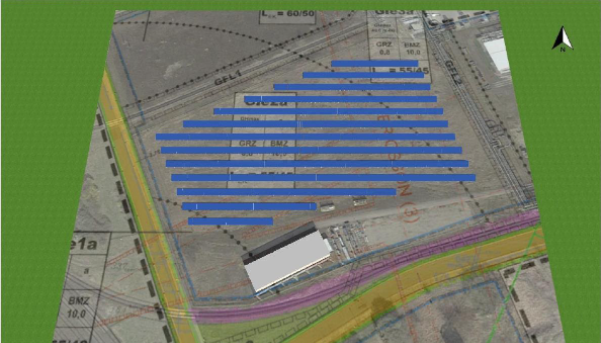Next Topic
Select SDGs to find out how we are taking action in support of the UN Substinable Development Goals
2022 ISRAEL CHEMICALS LTD. | ALL RIGHTS RESERVED


There are two types of energy sources: non-renewable energy, which is derived from fossil fuels, and renewable energy sources, such as hydropower, solar power and wind power. Energy derived from fossil fuels contributes to emissions of health-related air pollutants and greenhouse gases.
Target: Increase share of renewable energy consumption to 50% by 2040
Renewable energy, in contrast, is widely considered the solution for continued economic and human development, while attempting to combat the harmful influence of climate change. Therefore, as renewable energy becomes more readily available, efficient and economically feasible, countries worldwide have encouraged and developed large-scale use of clean energy sources.
The majority of ICL’s sites in Europe currently consume 100% renewable electricity, generated by certified renewable sources.
ICL began a transition process by purchasing renewable Guarantees of Origin (GoO) derived from renewable energy sources for 100% of the electricity needs of the majority of ICL sites in Europe. Electricity was generated by diverse renewable sources – wind turbines, solar photovoltaic energy, hydro power and biomass.
ICL Austria Hartberg has been effectively carbon neutral for several years as it only consumes renewable electricity (mainly from hydro power) and renewable steam (produced from renewable-certified
The overall renewable energy usage by ICL Globally in 2020 was 1,120K GJ (=311 GWh). In other words, 21% of the Company’s global indirect energy consumption, and 3% of its overall energy (direct+indirect) consumption, was derived from renewable sources in 2020.
The next step for ICL is to convert all of its Americas’ sites to renewable electricity.
As of January 2020, the majority of ICL’s sites in Europe consume 100% renewable electricity.
Iberpotash is one of the largest electricity consuming sites, and the transition reduced ICL’s GHG emissions by an additional 65K tonnes of CO2e.
21% of ICL’s global indirect electricity consumption in 2020 was derived from renewable sources.
ICL has begun a wide scale initiative to install photovoltaic (solar energy) electricity production capacity in available and appropriate areas within the operational boundaries of its sites in Israel, Spain, Germany and additional countries. ICL has identified several plants that could benefit from installing on-site solar photovoltaic (PV) systems. Where possible, these systems will be set up in areas that have already been disturbed and the production plants will use most of the generated energy.
These projects are a part of the Company’s strategy to increase its use of renewable sources and to reduce its energy costs and greenhouse gas emissions.
The first phase will be at the ICL Periclase site in the Rotem plain, Israel. The project will include the installation of PV panels on available land within the site’s boundaries. The solar (PV) plant, which will cover around 6 hectares, will have a capacity of 5.5 MWp. The facility will supply energy to ICL Periclase which produces magnesia products for a range of industries including pharma and food supplements. Shortly after, a Microgrid will be installed in Zefa at the head of the Sdom-Zefa belt conveyor. The microgrid system will include PV generation, storage and an independent load optimization control system to become entirely self-sufficient. All roofs of relevant ICL facilities have been mapped, contractors have been retained and the installation of the PV panels will begin imminently.
In early January 2021, a solar project was approved for ICL Bitterfeld. The site produces phosphorus flame retardants and other products used in plastics, water treatment and more. The project will include installing over 2,000 PV panels covering 3,850 m2. The system’s capacity will be 750kWp and it will generate approximately 800 MWh per year. This will account for almost 20% of the total electricity consumption at the site. It is estimated that this project will reduce CO2 emissions by more than 300 tonnes per year.
In a third stage, during 2021 ICL will examine the viability of expanding the rollout of PV to its other European sites.


ICL is also adapting its product offerings to the needs of the new low-carbon economy. The Company is engaged in research and development of bromine batteries intended for more optimal renewable energy storage.
Read More